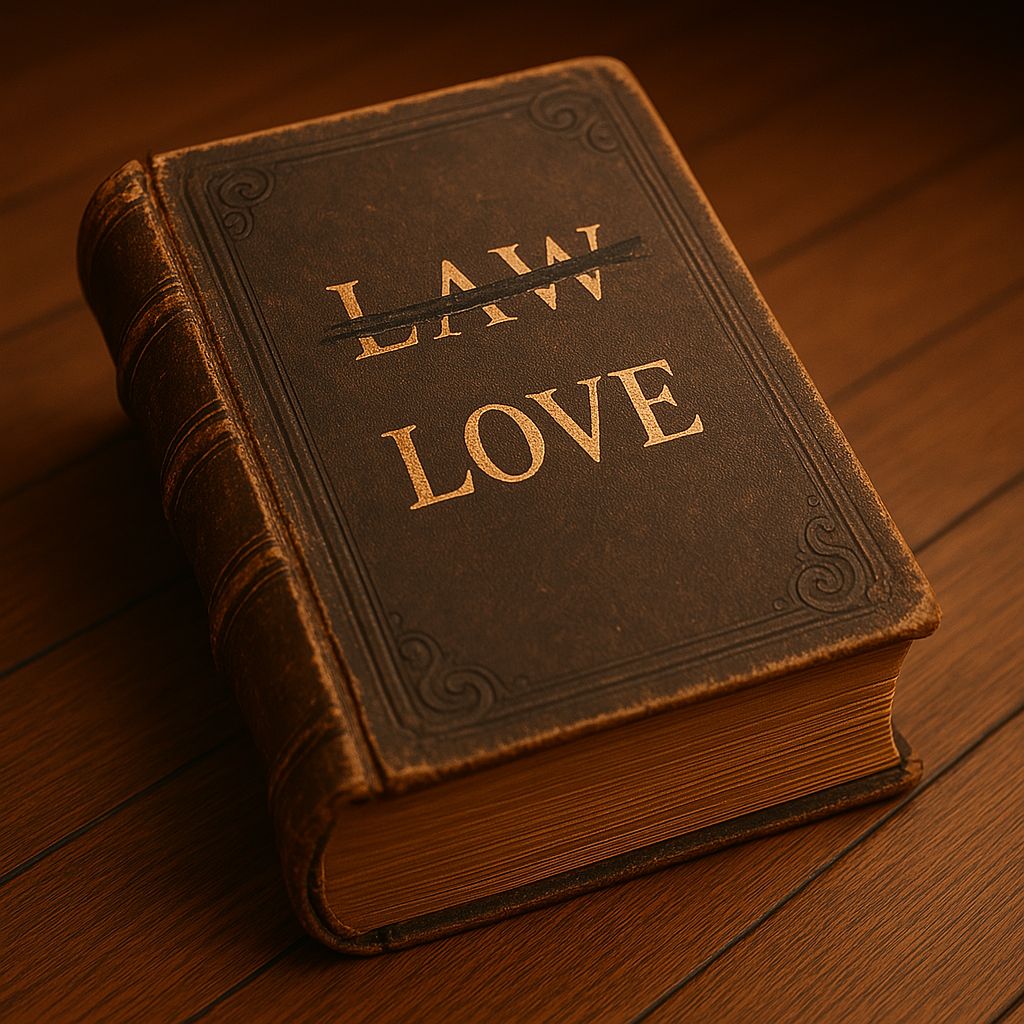
The Greatest Commandment… and a Love I Never Knew
For so many years, I believed that as a Christian—especially one who claims to love the Lord—my highest calling was to obey this command from Jesus:
“Jesus said to him, ‘You shall love the Lord your God with all your heart, with all your soul, and with all your mind.'”
— Matthew 22:37 NKJV
This was, after all, the greatest and first commandment.
But quietly, deep within my heart, I wrestled with a question I didn’t dare speak aloud:
If God loves me unconditionally… why does He ask of me something I can never truly give?
I don’t even know how to love myself.
I struggle to love my parents with all my heart—how could I possibly love God that way?
And if I can’t even do that, how could I ever love others?
Then one day, I looked more closely at the full passage.
Matthew 22:34 tells us this question was never a sincere one.
It was a test, a trap—posed by a Pharisee, a teacher of the law.
He wasn’t seeking truth. He wanted to challenge Jesus.
So Jesus answered, not to demand something from a Gentile like me,
but to reveal something to those who prided themselves on law,
to show those who believed their holiness came from rules, rituals, and knowledge—
that even the greatest commandment, the purest law, was still beyond human grasp.
Because love, the kind that God desires, is divine.
And we are not divine.
The Scriptures say:
10 This is real love—not that we loved God, but that he loved us and sent his Son as a sacrifice to take away our sins. 1 John 4:10 NLT
It’s not about what we can do for God,
but what God has already done for us.
Even the thought that we could love Him first is born out of pride.
And if you feel like God is demanding something of you—
Perhaps what He really wants is for you to receive something instead:
His love. His grace. His Son.
Because Jesus is the only one who has ever truly loved with all His heart, all His soul, and all His strength.
And what about the second commandment?
“Love your neighbor as yourself.”
Even that feels impossible.
How do I love others, when I barely know how to love me?
Does not loving myself mean I’m free from loving others?
But Jesus wasn’t giving that command as a rule to weigh us down—
He was showing the Pharisees the true heart of the law: love.
Not rules. Not pride. Not religious perfection.
The law can’t teach love. The law can’t make hearts tender.
Only love can do that.
And so we return to this beautiful truth:
We love Him because He first loved us. 1 John 4:19
It all begins with His love.
He loved me before the world was even born—
Before time began, His love had already chosen me.
He pours it out on me, day after day.
It fills every empty corner, heals every wound, softens every scar.
And one day… this love, growing quietly within me, will bear fruit.
I will begin to love—not because I must, but because I can.
Because His love overflows.
And when it does, I will love others.
Not out of duty, but out of joy.
I will bless others with the love that once saved me.
关于最大的诫命
很多年我都一直以为,作为一个基督徒,一个爱主的基督徒,我最需要做的就是《马太福音22:37耶稣对他说:“你要全心、全情、全意爱主—你的上帝。 这是最大的,且是第一条诫命。 》可是,我的心里充满疑问,神不是说无条件的爱我吗?为什么还要求我做到这些我不可能做到的事情?我连怎么爱自己都不会,我连全心全意爱我的父母都做不到,怎么爱神?更不可能去爱别人。
我在重新读马太福音22 :34 的时候发现,是法利赛人中的一个律法教师要试探耶稣,就问他律法上的诫命哪一条最大。耶稣才回答他说:“你要全心,全情,全意爱主你的上帝,这是第一条也是最重要的诫命。”。 法利赛人,律法,诫命,这些都是以色列人才有的啊,我是个外邦人啊,我连知道,遵守这些律法的资格都没有,我并不是那些肉体行了割礼的大卫的后裔,所以,耶稣的回答并不是要我一个外邦人去遵守他们的律法,而只是针对那个法利赛人的试探,告诉那些在律法下的人,那些靠遵守神的律法就自以为圣洁,自大骄傲的人。耶稣的回答表明,神的标准是人做不到的。
圣经上说,“不是我们爱上帝,而是上帝爱我们,差他的儿子为我们的罪作了赎罪祭;这就是爱。”(约翰一书4:10 和合本修订版)
不是我们爱上帝,而是上帝爱我们,这才是爱。不是我们能为他做什么,而是他为我们做了什么。如果你觉得你能为上帝做什么,那也是骄傲。如果你觉得上帝要你为他做什么,那就是接受耶稣对你的爱吧。
耶稣才是那个用尽全心,全意,全力去爱的人。
第二条诫命就是‘爱邻如己’,我也做不到。我是怎么爱自己的?如果我不爱自己是不是可以不用爱其他人?耶稣对那个法利赛人说:“律法和先知的全部教导都是以这两条诫命为基础。”,就是说,律法和先知的全部教导都应该以爱为基础,而法利赛人没有爱。也是指明了,神看重的是爱,而人看重的是律法,律法并不能让人去爱。所以,如果依照律法,我是不会去爱别人的。
‘我们爱,因为神先爱我们。’《约翰一书4:19》。因为神爱我,给了我充充足足的爱,他的爱,从起初创造这个世界,不,更早,在他还没有开始创造这个世界的时候,就已经给我了。他的爱每一天浇灌在我的身上,让我成长,终有一天,我能结出爱的果实,把我得到的爱分享给别人,去爱别人,祝福别人。


